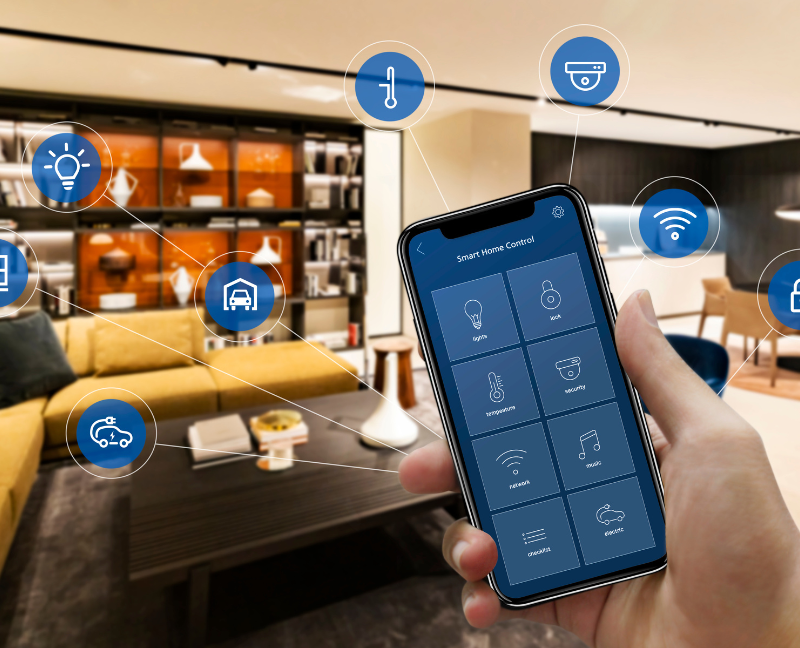Looking for pet-friendly homes is not an easy endeavor, especially if you have a pet to take into account. It doesn't matter if you're a renter wanting to buy or a homeowner looking for more (or less) square footage. Once you've located what you believe to be the ideal home, you'll need to confirm that your furry family members will be comfortable there as well. To assist your family in deciding whether the next area you move to will be a good fit for you and your pet, our team at Indy Home Pros of RE/MAX Advanced Realty has provided the following advice.
A pet-friendly home is a home that welcomes and accommodates pets, usually cats and dogs. This means that the home is designed with features that make it safe and comfortable for pets to live in, such as a fenced yard or a designated pet area inside the house.
A pet-friendly home may also have pet-specific amenities, such as a pet door, a feeding station, or a space for a pet bed.
In addition to physical accommodations, a pet-friendly home may also be located in a pet-friendly community, where there are ample opportunities for pets to exercise and play, and where there are nearby pet stores and veterinary clinics. A pet-friendly home may also have rules and guidelines that help ensure that pets and their owners can coexist peacefully and comfortably.

Will your pet be usually indoors or outdoors?
Do you anticipate your pet running about the home or yard?
Choosing a home with spacious rooms and corridors will provide your pet with lots of areas to run around and play if the answer is inside.
You might also want to take into account a house that includes a room or area inside that you can "fence off" so that your pet can relax when visitors are over.
Keep the flooring in mind as well if your pet will be an indoor/outdoor pet.
Wood flooring is becoming more and more common, but it can also get scuffed easily.
Muddy paws are a part of owning a pet, so if you prefer carpet, just be aware of that. Choose a hue that won't show a lot of use and abrasion. Make sure there is space in the yard for a comfortable dog home and plenty of shade for hot summer days if your pet spends most of its time outside.
Are there dog parks and nice walking paths if you have a dog?
For you and your pet, great walking places and parks are undoubtedly a necessity. It's a terrific way to spend time with your pet on relaxing weekends, and it will encourage you both to walk and exercise more frequently. Good walking paths should have many options for routes, be spacious with a low threat from traffic, and have a nice setting.
Are there any pets nearby?
It can be excellent to have other pets nearby occasionally so that your furry family member can socialize and make new pals.
Nonetheless, some animals have issues with their nearby furry companions. Your ability to judge whether your pet requires extra space will depend on his or her nature.
Since they have tails, good fences do make nice neighbors. But if you haven't already, you should think about getting your pet health insurance because pets can be unpredictable.
Is there enough room for running and playing?
Is it now dog-friendly or do you need to make some immediate landscaping changes and even put up a fence?
Keep in mind that an enhanced yard for your pet doesn't necessarily mean an upgraded home.
Be sure the square footage of your new home is acceptable for the breed of dog you own if you're moving into an apartment or condo.
Compared to a Domestic Shorthair cat or a Chihuahua, a larger dog like a Doberman Pincher will require a lot more area.
How old is your pet?
Do you have a senior indoor pet?
If so, taking the stairs might not be the greatest option for your pet, particularly if he is displaying arthritis symptoms. As they continue to develop their coordination, puppies may also have trouble climbing stairs.
Does your real estate know you're a pet owner?
It seems fairly straightforward, yet a lot of real estate agents fail to inquire about the presence of pets in the home-buying process.
Your real estate agent can focus on properties that are more pet friendly if they are aware that you have pets. Inform them of your search criteria and those of your pet.
Want a new home for you and your fur babies? Our team at Indy Home Pros is here to help! Leave a comment or call us at 317-316-8224 today!
You will have a variety of options when it comes to investing in real estate.
Foreclosed homes are one item you'll run into if you're seeking investments. Despite their widespread use, few people consider purchasing them as investments.
If this is your first time hearing about foreclosed properties, you might be wondering what it means -- what are foreclosed properties really about?
If that's the case, you're in the right place. In this post, we'll answer that and more!
A foreclosed property is a property that has been repossessed by a lender or a bank as a result of the owner's inability to keep up with mortgage payments. This can occur when a homeowner defaults on their mortgage loan, typically due to financial hardship, and is unable to make the required payments to the lender.
When a property is foreclosed, the lender or bank takes possession of the property and attempts to sell it to recover the outstanding balance on the mortgage loan. Foreclosed properties are often sold at a discount compared to their market value, making them attractive to investors or buyers looking for a bargain.
However, it's important to note that purchasing a foreclosed property can come with risks and complications, such as liens or outstanding debts attached to the property, as well as potential repairs and maintenance issues. It's important to thoroughly research and understand the potential risks and benefits before considering purchasing a foreclosed property.

Purchasing a foreclosed property can offer an opportunity for a good deal, but it's important to carefully consider the potential risks and complications involved. Here are some things to consider before purchasing a foreclosed property:
Overall, it's important to thoroughly research and understand the potential risks and benefits of purchasing a foreclosed property before making an offer. Consulting with professionals and conducting due diligence can help mitigate risks and ensure a successful purchase.
Buying a foreclosed property can be a good investment opportunity, but it also comes with some risks and challenges. Here are some factors to consider before making a decision:
Before deciding to invest in a foreclosed property, it's important to do your research and assess the potential risks and rewards. You should also work with a real estate agent who has experience with foreclosures and can guide you through the process.
Want to invest in foreclosed properties? If yes, our team at RE/MAX Advanced Realty is here for you! Contact us by clicking this link.
Pulling up listings to explore on your phone or tablet is the norm these days, whether you're planning to buy, rent, or sell a home. The same thing goes if you're a real estate agent attempting to sell a listing.
However, that is only the tip of the iceberg showing the impact on real estate sectors as technology continues to have a significant influence on how both consumers and business professionals view the market.
There are numerous opportunities for using current real estate technologies to expand the nation's largest asset, estimated to be worth $40 trillion, in both residential and commercial properties.
New technologies are having a significant impact on the real estate industry, both in terms of how properties are marketed and sold, as well as how they are built, managed, and maintained.
If you're a realtor, finding the best technology for real estate agents might help you grow your business and sell more houses.
Virtual And Augmented Reality: With the advent of virtual and augmented reality, potential buyers can now view properties remotely in a fully immersive way, allowing them to get a sense of the space without actually being there. This has made it easier for buyers to browse and explore properties, particularly during the pandemic when in-person viewings were limited.
Drones: Drones are being used to create high-resolution aerial images and videos of properties, which can be used in marketing materials and to identify issues with roofs, gutters, and other areas that may be difficult to access.
Artificial Intelligence: AI is being used to analyze data about property values, rental rates, and other real estate trends, making it easier for investors to make informed decisions about where to buy and what to charge.
Smart Homes: Advances in smart home technology have made it possible for homeowners to remotely control everything from lighting and temperature to security systems and appliances. This has made homes more energy-efficient and secure, while also providing greater convenience for homeowners.
Building Information Modeling (BIM): BIM is a technology that uses 3D modeling software to create detailed digital representations of buildings, which can be used to identify potential problems and optimize building design and construction.

With the presence of the latest technologies, the industry is changing for both homeowners and realtors.
For instance, websites have made it easier for anyone to view what’s available in any location, thanks to online listings.
You may find information on the area, including school rankings, tax and purchase histories, and images and extensive descriptions of the houses. Want to know how far you are from a hospital or a restaurant using a satellite view? Just get your phone and click.
Speaking of phones, mobile apps are creating an impact, too. Learning about the neighborhood and real estate per se is just a click away. Using mobile apps, you can get notifications about new listings and filter them based on your requirements. The best part is that these apps can help with your budget, find the right real estate broker or agent, and many more.
Overall, new technologies are changing the way that properties are marketed, sold, and managed, making the real estate industry more efficient and accessible.
Famous actors like Leonardo DiCaprio, Oprah Winfrey, and Arnold Schwarzenegger invest in real estate; meanwhile, some celebrities don't just help flip houses but also, get their very own real estate licenses.
Some do this as part of their hobbies while other actors simply want to achieve their dream as real estate moguls. Below are celebrities who are real estate agents, too!
"I got my real estate license because I didn't want to work in a restaurant in New York, as a summer job. So I thought, I'll work in a real estate office," the WandaVision actress shared in an interview with W Magazine. "I was dealing with my sister's friend who was a realtor, and I dealt with his rental clients. And I would mispronounce streets in New York because I had just moved there, all the time."

NEW YORK, NEW YORK - OCTOBER 10: Elizabeth Olsen attends BuzzFeed's "AM To DM" on October 10, 2019 in New York City. (Photo by Dominik Bindl/Getty Images)
"I got my real estate license today!!!! I really can't believe it!!!," the Dancing With The Stars actor captioned while holding a letter and posing for an Instagram photo. "Not too many people know this but I've been studying for quite a while, and I've had a passion for real estate all my life."

"Real estate broker in training," the Real Housewives of New York actor used as a caption when she revealed that she’s joining Douglas Elliman as a real estate agent. Along with it is a stunning photo of her standing in a glass-walled building showcasing a beautiful New York sunset.

"I found myself in a three-year depression, very, very depressed, and I lost everything pretty much, everything except for my children. It was just me and the kids, and I had to get back up and fight for my life, and I chose real estate...I signed up for real estate to provide for my children. This is a real job for me, this is what I have, and this is what I'm committing myself to," the Former Playmate revealed as she got her license in 2020.

WEST HOLLYWOOD, CALIFORNIA - AUGUST 02: Kendra Wilkinson attends Los Angeles Travel Magazine's Endless Summer Issue Release Party at Penthouse on August 02, 2019 in West Hollywood, California. (Photo by Tasia Wells/Getty Images)
"I feel very lucky to have such a diverse client base, and now I have the advantage of breadth of experience with Douglas Elliman," the former Real Housewives of New York shared after becoming a real estate agent in August 2019. "They are the strategic partner in all of my real estate endeavors."

NEW YORK, NY - OCTOBER 08: Kelly Bensimon attends QVC presents "FFANY Shoes on Sale" at Waldorf Astoria Hotel on October 8, 2014 in New York City. (Photo by Jamie McCarthy/Getty Images for QVC)
"I used to be a real estate agent, that's how I met my late husband, Richard Medley. I got him his townhouse," The Real Housewives of New York City actor shared in a Times Union interview in 2019.

NEW YORK, NEW YORK - FEBRUARY 04: Dorinda Medley attends Woman's Day Celebrates 17th Annual Red Dress Awards on February 04, 2020 in New York City. (Photo by Bryan Bedder/Getty Images for Women's Day)
Kyle Richards’ husband did not just sell houses as a real estate agent; he’s also a Founder and CEO of The Agency, a $1 billion brokerage that aids brokers and their clients in achieving their real estate objectives via the use of cutting-edge technology and creative marketing techniques.

LOS ANGELES, CA - MAY 14: Mauricio Umansky attends the 2016 MOCA Gala at The Geffen Contemporary at MOCA on May 14, 2016 in Los Angeles, California. (Photo by Jason LaVeris/FilmMagic)
"I'm going back into real estate. I've signed up with a luxury real estate agency," the former ROHC star shared in an interview on RealiTea With Derek Z. She claimed she has maintained her real estate license over the years and has made the decision to try her hand at the industry once more after leaving the Bravo series.

SANTA MONICA, CALIFORNIA - JUNE 02: Tamra Judge attends the 2022 MTV Movie & TV Awards: UNSCRIPTED at Barker Hangar on June 02, 2022 in Santa Monica, California. (Photo by Axelle/Bauer-Griffin/FilmMagic)
These are just some of the public figures and celebrities who are real estate agents, too. Do you know anyone else who made a career out of selling real estate? Feel free to share their names in the comments
As a fur parent, you probably already know that dogs and cats can get into trouble just as much as kids. The curiosity of these pets is innate. They might start poking around your house, and stumble onto anything dangerous. Therefore, you must make every effort to maintain a pet-friendly environment in your home.
There are numerous safety recommendations you can keep in mind to safeguard your dogs, as well as methods for maintaining a clean home even when you have pets.
You must bear in mind that while some things are not dangerous to people, it might still be dangerous. This is the first thing you have to remember as you begin the process of keeping your home safe for your pets. For example, if a cat consumes a lily, her kidneys may shut down since some plants can be harmful to animals.
Meanwhile, to find out what is actually harmful for your dogs, you must conduct some research as a homeowner. You can simply strive to keep anything out of reach in addition to recognizing exactly what is hazardous for children. The following are some methods you may ensure the health and safety of your pets:
Install child-resistant latches on the kitchen and bathroom cabinets, so your pets won't be able to get harmful foods and toxins.
If the childproof locks don't keep your dogs out, put medications, cleaning supplies, and other chemicals on high shelves where they can't be reached by animals.
Garbage cans should be covered and, if at all feasible, kept outdoors or in a cabinet or closet. Trash bins are frequently loaded with an assortment of expired food, hazardous chemicals, and small, inedible pieces of trash, all of which can be damaging to your animals.
Behind huge units, animals may become trapped and overheat. Put up barriers to stop them from getting behind items like refrigerators, air conditioners, dryers, washing machines, and dryers to avoid unlikely situations.
Make sure food is secured behind a locked door or out of reach. Different foods cause issues for dogs and cats, and the packaging itself could be a choking hazard. All food should be kept out of reach of the animals.
To stop small creatures from drowning, keep the toilet lid down. It's risky to let your pets drink from the bowl because it exposes them to a variety of toxins.
Try to get rid of any dangling cables from stereos, TVs, game consoles, or other similar devices. If your pets chew on any wires, they can suffer injuries.
Avoid putting harmful objects like vases, picture frames, or other knick knacks on low shelves where your dog or cat may reach them. Smaller or breakable goods need to be stored higher than where your pet can access them.
Keep an eye out for plants that could harm your pet and try to stay away from bringing them inside. There are numerous common houseplants that are harmful for your animals to consume, including lilies, azaleas, oleander, tulips, yew, chrysanthemums, and English ivy. Check to see if your houseplants pose any risks to your cherished pets.
Ensure that all thread and string are securely stored. Pets can be in grave danger in sewing rooms in general. A cat can easily suffocate when playing with some thread. Needles also pose a real hazard to animals.
To prevent your pets from eating your dirty clothes and shoes, keep them in closets or designated bins. Other than potentially ruining your personal stuff, pets can choke on minor parts like buttons and zippers.
Do not tuck your dog or cat into a cabinet, drawer, or closet. Without food and water, you don't want to trap them! Before closing the doors, make sure there are no animals in any cabinets.

Pick carpets with low loop counts and those that are stain-resistant, such as indoor/outdoor rugs. Particularly cats are vulnerable to self-injurious hooks from their claws.
You need to know what your dog and cat should be doing in addition to making sure that your home is pet-proof. Both positive and negative reinforcement of your pets' conduct can safeguard your possessions and your personal health and safety.
Give your pets, especially a puppy, a few chewable items. These could be sturdy chew toys, animal hooves, snouts, or other tasty treats that dogs like to gnaw on. Also, don’t forget to do your homework before leaving your pet with any of these objects as some of them, like some rope toys, may be choking hazards.
Provide your cats with a scratching post. You could have seen some fresh stains on your couch, window trim, or even the carpet. Consider installing scratching posts in the locations you visit.
You may reduce the harm a cat can cause to your furniture, cherished apparel, or even to you by using claw caps. In case you haven’t used it on your pet before, the caps will still allow the cat to retract its nails. They are fastened with a small amount of cat-friendly nail adhesive and fall off naturally.
Since your pets are members of the family, you want to take care of them so that they are secure, content, and healthy. These suggestions will help you keep your animals safe while keeping a close check on them.
A tidy home is what every homeowner wants. Finding a means to keep your house clean despite having dogs or cats running about is part of being a true pet-friendly homeowner. You can maintain a tidy home and safeguard your beloved furry friends by following these recommendations:
Choose décor items like cushions, blankets, rugs, and bedding that won't reveal hair. In other words, if you have a black cat, consider decorating with deeper hues. If your puppy is white, think about using softer hues.
Be ready for mishaps. Accidents do happen, especially if you have young animals. Make sure you have a cleaning solution that can clean and disinfect animal feces.
Utilize closed storage to prevent your little dog from pulling anything off the shelf. This also helps maintain a cleaner, safer home.
Want to reduce pet hair around the house? If yes, then commit to regular grooming.
Consider purchasing a vacuum with a high performance particle air filter to efficiently remove pet hair.
Before you go out, make sure you have plenty of lint removers on hand to remove hair from your clothes.
Before letting your pet inside the house, wipe off their paws. This will help avoid any paw prints left in your house.
To make cleaning up spilt food easier, lay a piece of plastic placeware underneath your pet's dishes. You may prevent ants and other unwanted insects from getting into the food by keeping the dishes slightly raised.
Being organized is the key to maintaining a tidy home. You need to be prepared for those incidents by keeping a decent vacuum, lots of lint brushes, and carpet cleaners on hand.
Your goal is for your pets to help them remain healthy and feel comfortable in your home. You can do this so by maintaining a clean and safe house for your fur babies.
Knowing what is harmful to your cat or dog can help you determine when to take them to the vet and when you may simply clean up the mess that has been created. However, when you have doubts, you should visit a veterinarian to examine your pet.
Do you have other tips for a pet-friendly house? Feel free to drop them in the comments section!
When thinking of the Hoosier state, many think of Indiana's robust auto industry, corn fields, or Colts. However, real estate investment in Indiana has become popular. This Indiana real estate market guide will show investors why this attractive Midwestern state must be part of their investing plans.
The Circle City, or Indianapolis, blends the buzz of the Big City with the rustic charm of the Midwest. Additionally, it has fantastic cash-flowing assets and a sizable expansion ceiling. Real estate analysts praise its ongoing growth and robust rental market.
Indianapolis homes are in high demand due to investors from other states. According to HousingWire, Indianapolis is where remote real estate investors rank highest for having affordable real estate and larger profits.
Before investing in any real estate, many details need to be figured out, and here is the investing guide for Indiana's real estate that you can consider:
Indiana is not the first place people think of living. If you look deeper, it's no wonder that this state has new inhabitants and property investors seeing Indiana as a place to invest and expand their fortune through real estate. Indiana is worth considering if you want a change of scenery, a new house, or a rental property.

According to the World Population Review, Indiana's population is 6.8 million, up 300,000 from 2010. As the population grows, real estate values will rise. Indianapolis, the 15th largest US city, is also desirable. Fort Wayne, Evansville, Carmel, and South Bend are Indiana's four most populated cities.
A diversified economy can be found in Indiana. Healthcare, logistics, the public sector, and technology are a few sectors that are essential to Indiana's economy. The state is also home to several reliable businesses. However, the 100 most prominent companies in the state include Go Electric, Anthem, and numerous others.
Indiana has a high job growth rate, which is advantageous for those looking for new professional prospects. However, many of these people will also need new homes. In terms of job growth, Indiana is in the lead. The market has increased by 2.5% in the past year, putting the state at 4% over the national average.
Low taxes make Indiana a business-friendly state. Indiana is also a landlord-friendly state. Landlords can raise rent with a 30-day notice. State landlords can levy security deposits, late fees, and deductions. Ten days for not paying rent, landlords can evict tenants, making dealing with the delinquent tenants easier.
Indiana has a high occupancy rate, meaning tenants or their owners occupy most homes. The vacancy rate in Indiana is about 8.7%. A high occupancy rate indicates a steady market in the state, which increases the likelihood that your prospective property will be quickly rented out after you invest.
It's important to remember that Indiana has cost-effective homes, enabling landlords to charge affordable rates and fostering a steady rental market for those looking to invest. Indiana's real estate investing trends encourage expansion for a growing state.
Being a first-time home buyer can be exciting. It gives you the flexibility to decorate and refurbish any way you choose, the opportunity to get away from the controlling landlord you've been living with for years.
But before you go on the journey to become a first-time home buyer, there are many things you should be aware of. The real estate market may be complicated and cutthroat. How much should you put aside a down payment on a first home? What are grants for first-time home buyers? Do first-time homeowners have to pay stamp duty?
This article will give some helpful guidelines for first-time buyers to consider before purchasing a home.
When trying to get your deposit savings on track, you might want to take the following factors into account:

First-time home buyers must consider more than their deposit. The following costs must be considered when buying a home, regardless of how much you need to save for a deposit:
FHOGs, or first-home owner grants, can assist you in crossing the finish line and purchasing your first house. For those planning to buy their first home, the local state or territory government may give financial support through a first-home owner's grant. Each territory and state has a slightly different set of policies.
Finding the right property is essential, but so is locating the right first-home loan. However, selecting the best loan may involve more factors than the interest rate.
Many sellers prefer auctions to private sales, so you should be confident to identify and buy your first dream property. Online or in-person auctions are a common way to sell the property. It would be an excellent view to comprehend how they operate and what you'll need to know before bidding, given the thrill of the bidding contest.
When it comes to providing a pet-friendly home for a dog, cat, or other domesticated companion animals, you have likely thought about the needs of such animals. You will incorporate some parts of the home that will increase the quality of life for pets, catering specifically to people who consider their animals to be members of their own families.
In addition, your companions' specifications for a property will impact your judgments about purchasing a home. Furthermore, because the pandemic is still going on, it makes sense to spend money on a brand-new townhouse, condo, apartment, or home that can suit your and your pets' needs.
Millennials, in particular, are putting a lot of emphasis on their desire to have a nicer living environment that they can share with their families, pets, and other loved ones. They are also more receptive to investing in a property that will allow them to adopt and take home a furry friend if they do not already have one. This is because a larger home will give them the ease and freedom to adopt and take home a furry companion.
When looking for the ideal and pet-friendly home, here are some things you should keep in mind, regardless of whether you are a pet owner.
In particular, for those with characteristics that will keep their dogs secure and content, a home with outdoor space, such as a condo with a balcony or a courtyard, can be highly alluring to home hunters. For instance, if a home already has a fence, the barrier should be strong enough to prevent your pets from exiting the property. There shouldn't be any cracks, crevices, or other hazards in the outside area that could injure the pets.
Although every pet is different and has distinct needs, providing them enough room to play, run, relax, and even hide out for a while is still beneficial.
For example, the amount of space needed for a Great Dane differs from that of a Chihuahua or other toy-sized dog. In contrast, a cat would prefer to live in a townhouse or two-story apartment due to its numerous crevices, such as the stairs, shelving, or banisters.
Also, remember that there are better options than expanding your home. Access to neighborhood parks and gardens will benefit pet owners with energetic canines. An ample-sized condo with a pet area will do as long as you set a time to take them for a stroll so they can stretch and get their daily exercise.

Living in an area that welcomes pets and has pet-friendly facilities is a significant plus for home buyers. A park with a water fountain where pets are welcome to roam freely, and a checkmark next to it will help you cross it off your homebuying must-do list.
The other occupants will be more considerate of you and your furry friends when you move into the house if they are also pet owners. Additionally, if there are other pets in the neighborhood, it will be simpler for your pets to develop social skills. Since these details are more elusive, you can better understand the neighborhood and the local traffic by driving around the chosen region at particular times of the day.
Before buying a home, check local pet regulations and pet owner restrictions. For instance, living in a town that lets you take your dog to the park and the supermarket for errands is better than staying home or driving to a pet-friendly park.
You should also learn about breed-specific and pet-limit laws in your neighborhood. Condominium owners may have a limit on dogs. A residence with good insulation or soundproof walls will comply with noise ordinances. Some cities require leashing pets when walking them in public. These limits are usually for safety.
Your pet-friendly home's layout, flooring, and other features should reduce wear and tear. Large dogs will deter buyers of open-concept homes, loft-style townhouses, and apartments. So they can handle foot traffic and pets running around. A garden or outside space with a faucet is ideal for bathing pets.
If you have palliative pets or mobility issues, consider a condo. Active pet owners could pick a mid-sized unit with manageable steps and rails. Pet owners should avoid slippery floors. The flooring should also resist scrapes and wear without losing its appearance. Pets can use extra closet space and cubbies for personal storage and supplies.
Like parents who choose a neighborhood based on a good school district, you should do the same for your dogs. Choose a home close to good veterinary clinics and local pet services for easy pet care. Especially for high-maintenance pets, a pet food store, and grooming service are essential. A good clinic, hospital, or emergency room is also crucial. If you get bitten or scratched, having a medical facility nearby will ensure your health is taken care of.
If you purchase a home in a gated and guarded community, you should consider communal amenities, such as pocket gardens, gathering places, and swimming pools. The neighborhood must be kept up, without potholes or exposed sewers.
Additionally, the roads and roadways ought to be secure and accommodate pedestrians. To prevent such incidents, barriers to unapproved places like the electricity box should be implemented. A fantastic choice for a home is not close to a busy road, freeway, or airport, as active pets who enjoy running around and playing run the risk of causing an accident.
When searching for a new home, consider how it will affect your pet's life and yours, mainly if the moving is permanent. Contact a real estate specialist for homebuying advice if you don't know where to start.
The process of getting pre-approval for your home loan is a vital stage in the process of purchasing a property.
It estimates how much money you could borrow if you apply for a mortgage and gives you more confidence when it comes time to place a bid on the house of your dreams.
We will share some guidelines and advice that will assist you in choosing the most appropriate for your circumstances about home loan pre-approval.
If a lender gives you pre-approval, indicative approval, or approval in principle, it means roughly the same: they are willing to lend you a specific amount of money. To accomplish this, they will analyze your current financial condition and determine how much money you can take out as a loan.
It is essential to remember that getting pre-approval does not ensure they will provide funds. It is a sign that your loan application will probably be accepted unless there is a significant change in your circumstances.
Your lender will conduct a property value and reevaluate your finances before providing conditional approval; this is the final stage toward securing your house loan. Once you've selected your property, the lender may conduct a property valuation.
The pre-approval process will tell you how much money you can borrow. When participating in an auction, knowing your maximum acceptable bid and understanding how much money you can spend on a particular piece of real estate is essential.

Pre-approvals are seen favorably by buyers, sellers, and real estate agents. It shows that you are a serious buyer and makes it less likely that you will back out of an offer because you don't have enough money. This may give you an edge if you want to negotiate an offer.
When they are prepared to begin looking into purchasing a property, the majority of consumers ask for home loan pre-approval. However, it's a good idea to consider a few points before applying.
It's great to choose your chosen lender before applying for several pre-approvals from various lenders in a short period because doing so can affect your credit score.
Pre-approvals typically become invalid after a period of three to six months. However, most lenders will negotiate new terms, provided your circumstances remain the same.
If there is a change in your case, such as when you start a new job or take out a personal loan, your lender may need to reconsider the application you submitted.
If you submit all relevant papers before applying for the loan, the pre-approval process for a home loan can be completed within 48 hours.
Recent bank statements, pay stubs or another source of income, proof of identity, and a view of your assets and liabilities, such as savings and previous loans, are required for pre-approval of a home loan.
Do you have more questions about home loans and home ownership? We are here to help! Dial 317-298-0961 to talk to one of our specialists or leave a comment below.
Due to the unpredictability of interest rates, you may be debating whether or not now is the best moment to lock in the rate on your home loan.
One of the essential aspects of the process of purchasing a property is becoming knowledgeable about the distinctions between interest rates that are fixed and those that are variable.
For this reason, we have compiled this guideline, which will provide some information about the benefits and drawbacks of each type of loan, allowing you to determine which option will be most beneficial to you, given your circumstances.
The term "fixed rate home loan" refers to the borrower "fixes" the interest rate at the current market rate, regardless of what that rate may be, for a predetermined amount of time. During that period, your interest rate will remain the same, irrespective of any changes in rates that may occur in the market.
Lock in interest rates are popular with first-time homebuyers. A fixed-rate loan lets you know how much you'll pay back during the fixed rate period. Budgeting is easier with a fixed rate and repayment schedule. You'll also feel better knowing there won't be any shocks if interest rates climb during the fixed rate period.
Redrawing or making more payments may not be possible. Even though you'll know your monthly payments, if interest rates fall, you'll still pay the higher rate for the fixed rate loan term. If you refinance to lower your rate, you may have to pay "break" or "exit" fees.
A loan with interest rates that are subject to change over the 25 or 30-year term of your loan is referred to as a variable rate loan. These loans typically follow the official cash rate changes set by the Reserve Bank of Australia (RBA), or they may be subject to change if your lender needs to make adjustments.

This loan usually offers redraw and offset accounts. If interest rates fall, your loan repayments will, too, save you money. Variable loans let you make extra payments to pay the loan faster and lower interest. A variable loan makes refinancing to a lower rate without significant break costs easier.
You get access to some cool things but also some drawbacks. If interest rates rise, you might have a more difficult time making your repayments. This could put you in a stressful financial position and make it more challenging to stick to your budget.
Split loans are the best of both. You "divide" your loan into fixed and variable parts, and you can choose which half is fixed.
This method lets you make extra payments to reduce loan interest. You can still use an offset account with a variable-rate loan.
If interest rates rise, just half of your loan will be affected, which may reduce your stress. Split loans allow extra repayments and minimize interest rate risk.
To learn more about this, you can visit our website or call us at 317-298-0961 now.

8313 W. 10th St
Indianapolis IN 46234
dennis@indyhomepros.com
317-316-8224